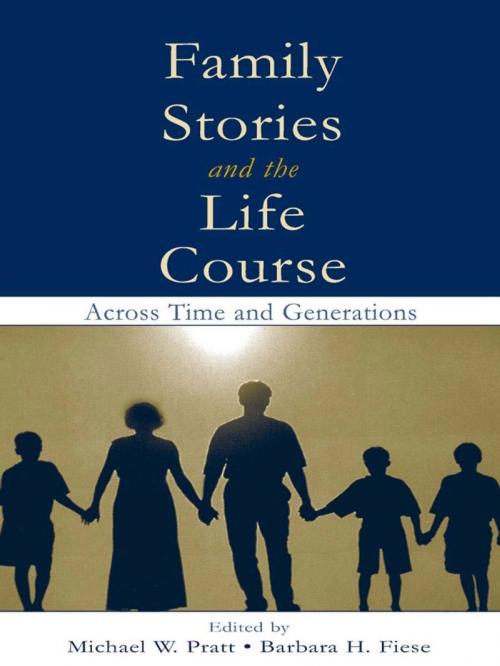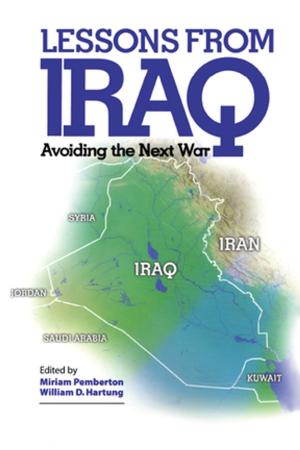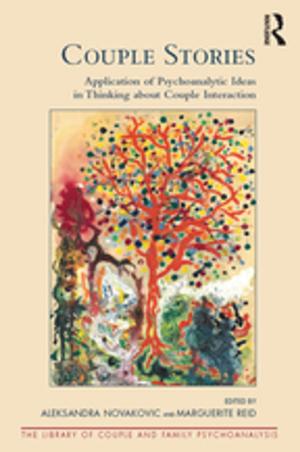Family Stories and the Life Course
Across Time and Generations
Nonfiction, Health & Well Being, Psychology, Developmental Psychology, Reference & Language, Language Arts, Communication, Mental Health| Author: | ISBN: | 9781135632465 | |
| Publisher: | Taylor and Francis | Publication: | April 26, 2004 |
| Imprint: | Routledge | Language: | English |
| Author: | |
| ISBN: | 9781135632465 |
| Publisher: | Taylor and Francis |
| Publication: | April 26, 2004 |
| Imprint: | Routledge |
| Language: | English |
This edited book draws from work that focuses on the act of telling family stories, as well as their content and structure. The process of telling family stories is linked to central aspects of development, including language acquisition, affect regulation, and family interaction patterns. This book extends across traditional developmental psychology, personality theory, and family studies.
Drawing broadly on the epigenetic framework for individual development articulated by Erik Erikson, as well as on conceptions of the family life cycle, the editors bring together contemporary examples of psychological research on family stories and their implications for development and change at different points in the life course. The book is divided into sections that focus on family stories at different points in the life cycle, from early childhood and the beginnings of narrative skill, through adolescence, young adulthood, midlife, and then mature adulthood and its intergenerational meaning. During each of these periods of the life cycle, research focusing on individual development within an Eriksonian framework of ego strengths and virtues is highlighted. The dynamic role of family stories is also featured here, with work exploring the links between family process, intergenerational attachment, and storytelling. Sociocultural theories that emphasize how such development is situated in the wider cultural context are also featured in several chapters. This broad lifespan developmental focus serves to integrate the exciting diversity of this work and foster further questions and research in the emerging field of family narrative.
The book is intended primarily for researchers and advanced-level students in the fields of developmental and personality psychology, as well as those in family studies and in gerontology. It may also be of interest to those in the helping professions who are concerned with family therapy and family issues, and may--due to its content and illustrative material--have appeal to a wider market of the lay public. The chapters are written in a readily accessible style and the analyses are presented in a fairly non-technical way. Because family stories are charted across the lifespan, it would be a suitable companion book to a more traditional lifespan textbook in certain courses.
This edited book draws from work that focuses on the act of telling family stories, as well as their content and structure. The process of telling family stories is linked to central aspects of development, including language acquisition, affect regulation, and family interaction patterns. This book extends across traditional developmental psychology, personality theory, and family studies.
Drawing broadly on the epigenetic framework for individual development articulated by Erik Erikson, as well as on conceptions of the family life cycle, the editors bring together contemporary examples of psychological research on family stories and their implications for development and change at different points in the life course. The book is divided into sections that focus on family stories at different points in the life cycle, from early childhood and the beginnings of narrative skill, through adolescence, young adulthood, midlife, and then mature adulthood and its intergenerational meaning. During each of these periods of the life cycle, research focusing on individual development within an Eriksonian framework of ego strengths and virtues is highlighted. The dynamic role of family stories is also featured here, with work exploring the links between family process, intergenerational attachment, and storytelling. Sociocultural theories that emphasize how such development is situated in the wider cultural context are also featured in several chapters. This broad lifespan developmental focus serves to integrate the exciting diversity of this work and foster further questions and research in the emerging field of family narrative.
The book is intended primarily for researchers and advanced-level students in the fields of developmental and personality psychology, as well as those in family studies and in gerontology. It may also be of interest to those in the helping professions who are concerned with family therapy and family issues, and may--due to its content and illustrative material--have appeal to a wider market of the lay public. The chapters are written in a readily accessible style and the analyses are presented in a fairly non-technical way. Because family stories are charted across the lifespan, it would be a suitable companion book to a more traditional lifespan textbook in certain courses.















